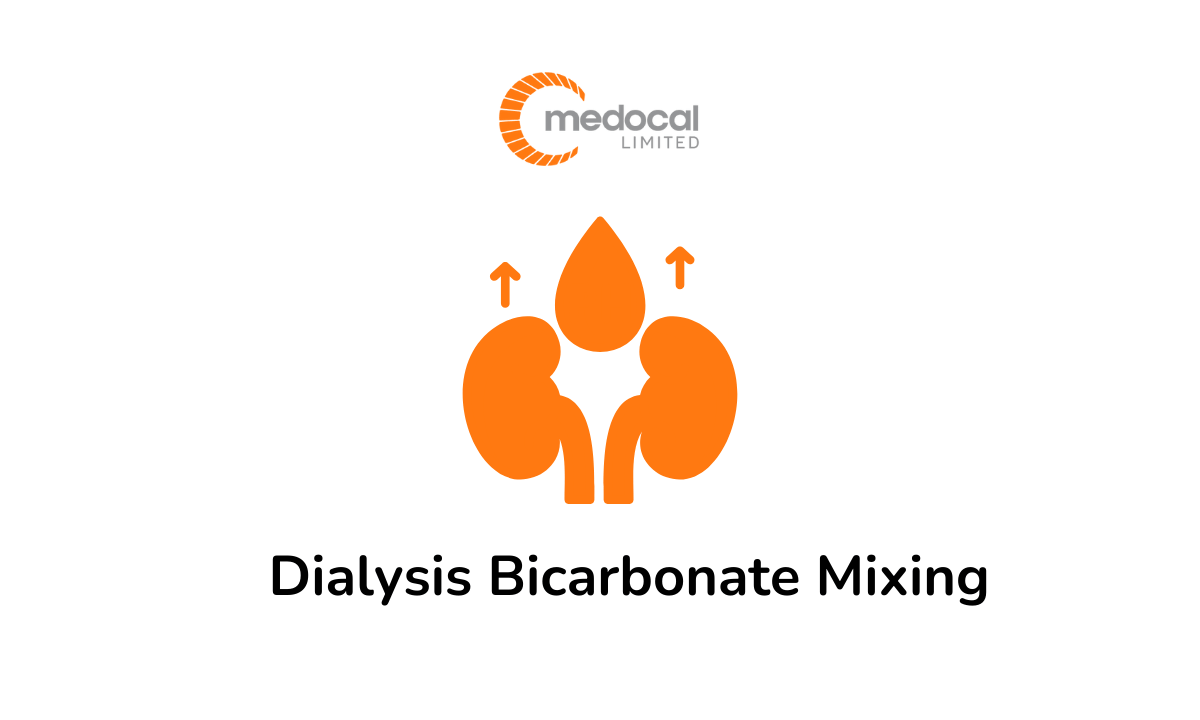
Welcome to Medocal Limited’s comprehensive guide on how to mix Bicarbonate for Dialysis. This procedure is vital to ensure patient safety, optimal dialysis treatment outcomes, and cost-effectiveness—especially when sourcing Dialysis Products in Kenya. Below, we break down the steps, ingredients, and essential tips to help you create the perfect Hemodialysis concentrate solution. Whether you’re a seasoned professional or new to dialysis procedures, this guide simplifies the process so that you can focus on providing excellent patient care.
Bicarbonate, often referred to as “Bicarb,” is a critical component in many hemodialysis solutions. It helps maintain the patient’s acid-base balance by removing excess acid from the bloodstream. During dialysis, Bicarbonate for Dialysis in the dialysate neutralizes acidic metabolic waste, ensuring more stable pH levels in the patient’s body. Maintaining this stability is crucial for overall metabolic health and to avoid complications such as acidosis or alkalosis.

When it comes to renal care, it’s never just about having dialysis products—it’s about having the right dialysis products. Using high-quality ingredients, including properly refined Bicarb, reduces the risk of complications such as hypotension, cramping, and contamination. At Medocal Limited, we prioritize offering top-tier products that meet stringent quality and safety standards to ensure optimal results for both patients and healthcare providers.
Below is a detailed procedure for mixing Bicarbonate for Dialysis. Always follow your facility’s protocols, and consult the product manufacturer’s guidelines to ensure accurate ratios and correct usage.
Inadequate mixing, using low-grade materials, and ignoring pH and conductivity checks are the most common pitfalls. Always remember that the well-being of dialysis patients depends on the accuracy and sterility of Dialysis Products in Kenya and the final solution used. Taking short-cuts in any step—especially regarding cleanliness and measurement—can lead to significant health risks.
To further optimize your dialysis setup, you may want to consider pairing your bicarbonate solution with a high-quality Dialyzer. This advanced product is designed for efficient blood purification and complements the benefits of a well-formulated Bicarb solution. For an in-depth overview of essential dialysis kit components, check out our 5 essential components of a dialysis kit article.
Dialysis treatments are continually evolving, and staying updated on best practices is crucial for healthcare professionals. You can explore more insights on effective dialysis procedures in our 8 common questions about dialysis kits answered post. Keeping abreast of the latest trends and expert advice ensures high-quality patient care.
Medocal Limited is a trusted name in offering Dialysis Products in Kenya. We believe in consistently improving healthcare delivery by providing reliable supplies and fostering a culture of safety. Our range of products—ranging from Hemodialysis concentrates to personal protective equipment—undergo rigorous quality checks to meet the unique needs of Kenyan healthcare facilities.
Whether you’re a dialysis center, hospital, or clinic looking to upgrade your supplies, feel free to visit our /shop/ page. You’ll discover a wide variety of medical supplies tailored to Kenyan market needs. At Medocal Limited, we strive to make sourcing Bicarbonate for Dialysis and other essential items a seamless and rewarding experience.
WhatsApp us
Drop us your email & phone no and we will share our products catalogue.
